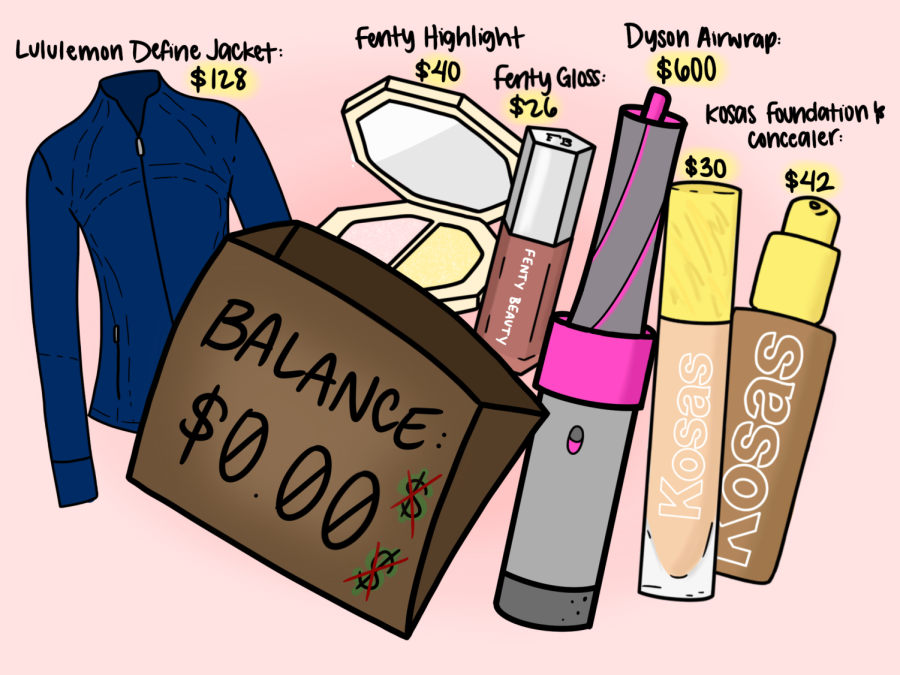Haul videos promote consumerism among SCHS students
Many students are influenced to purchase products seen in haul videos on social media platforms.
For many, opening a video and watching a creator showcase their purchases for the day can be entertaining. Haul videos are widespread on social media platforms and have influenced millions of people to spend money on products that sometimes do not last.
Products shown online have been depicted as useful and trendy that they sell out immediately. Sophomore Evonne Bergman has experienced the effects of false advertisement with a product and thinks people should not believe that the products are as seen in ads.
“I was influenced during Christmas break to buy the Dyson Airwrap because I found it interesting and convenient,” Bergman said. “I did not find the product worth $600 because it did not keep my hair curled for too long.”
Similar to Bergman, freshman Paige Souza admitted she had been convinced by hauls to buy certain stocks of popular items that are expensive and tend to sell out quickly for their brand name.
“I’ve definitely spent money on products that go viral online, like the Lululemon jacket, or makeup products like the Fenty Beauty glosses and the Kosas concealer,” Souza said.
One way people give in and spend money is by seeing their favorite social media influencer post what they usually purchase. Students like Bergman question whether creators are bragging about their purchases, or if they genuinely enjoy posting haul videos.
“Some creators tend to brag about their products by speaking about high prices,” Bergman said.
The SCHS community also believes that willpower plays a considerable factor in consumerism. Sophomore Jared Macaraeg feels if people are easily influenced, it can affect their consumer life.
“If you’re really impressionable, it probably helps in aiding that (consumerism) because if you keep seeing it and you’re not smart with your money, then you might buy it,” Macaraeg said.
Additionally, influencers are known to be sponsored for their videos and earn money for sponsorships. Souza supposes that when one sees their favorite creator showing a sponsored product, the viewer is undoubtedly going to buy it.
“Their hauls are sponsored, so when people see their favorite creators raving about something, then they’re bound to want to get it too,” Souza said.
Macaraeg noted people should be smart with their money even if someone influences them to spend it all. He believes that consumerism is caused by the negativity of hauls, and if people are not careful, it can affect their wallets.
“You’re not in the position financially to buy everything that they bought, but they present it in a way that it’s worth it,” Macaraeg said.


